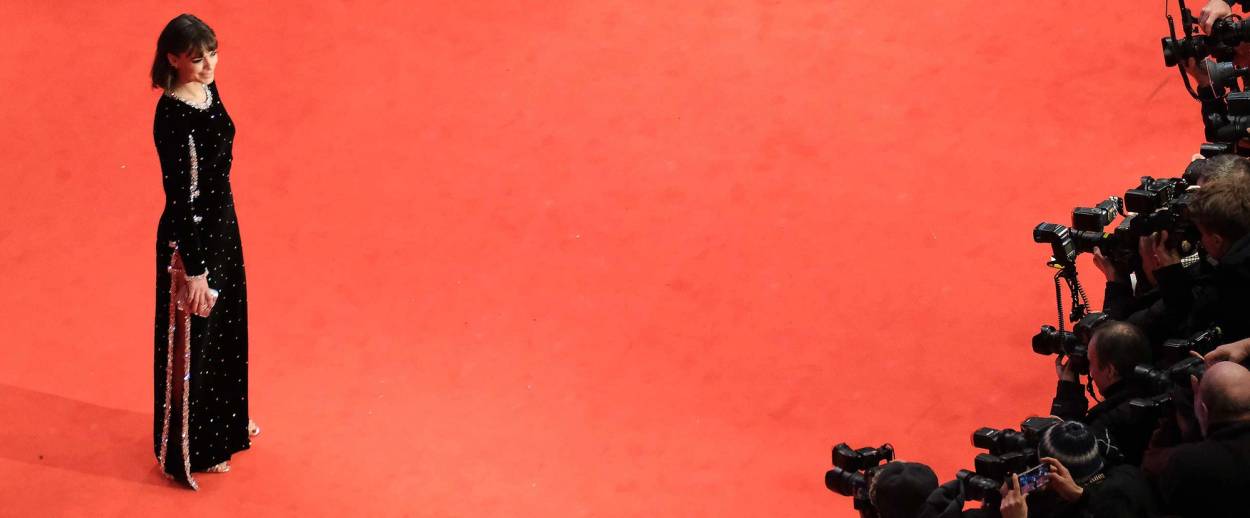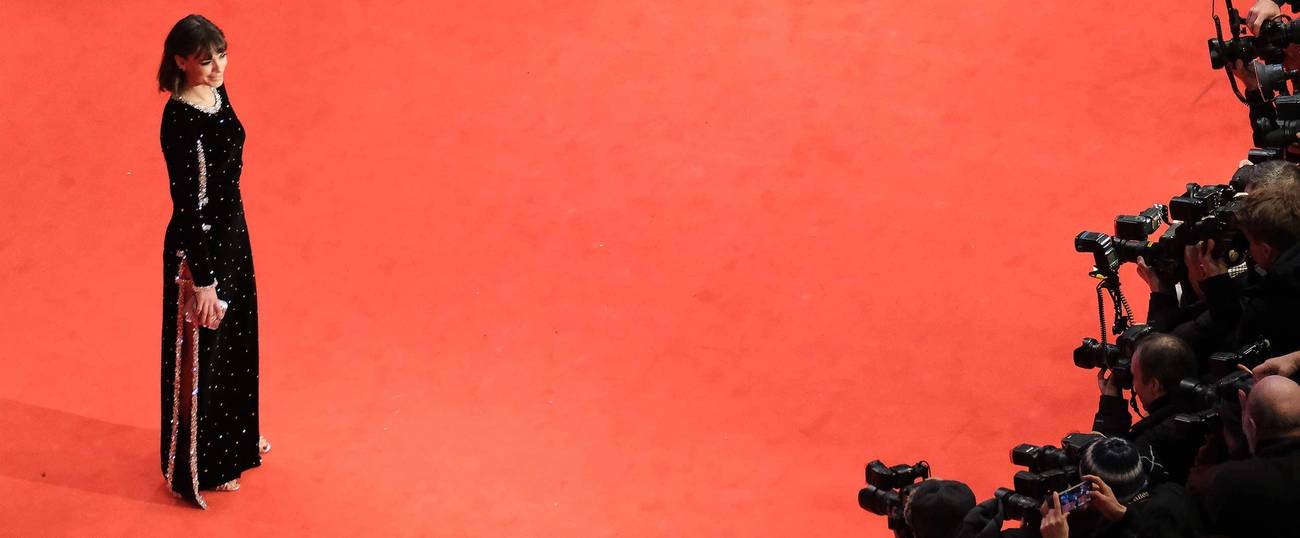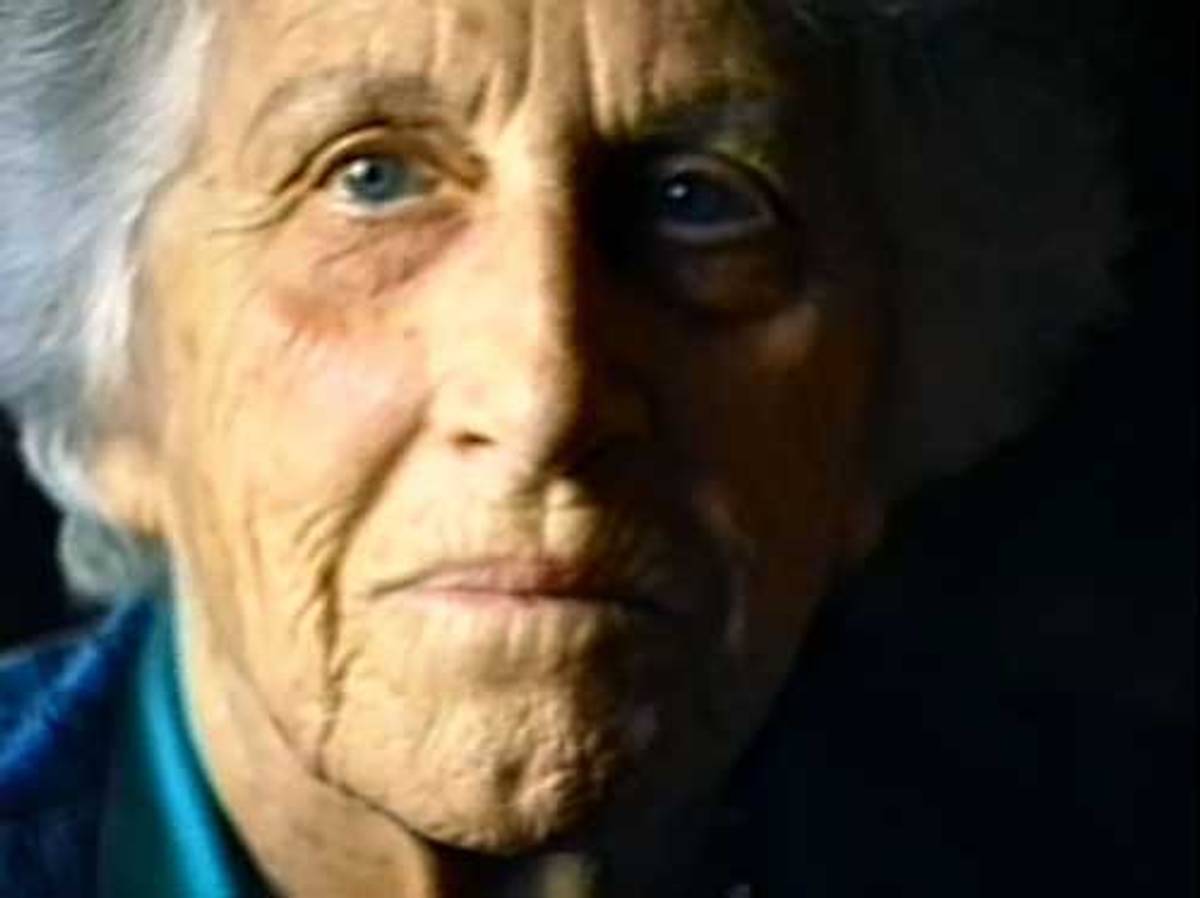Nazi Bears Awarded in Berlin
The 70th Berlinale, in thrall to politics instead of art, falls flat




An energetic chaos pulses through the Berlin International Film Festival, Europe’s largest film festival and the place to see more than 400 films screened across a dizzying array of sections. Reflective of the city itself, the Berlinale, as its known here, is insistently unglamorous and sometimes obscure, embodying a late-century ethos of experimentation and provocation that for more years than anyone reasonably expected made Berlin a persistent attraction for dilettantes and artists alike.
This year’s Berlinale was preparing celebrations for its 70th birthday before kicking off the festival on Feb. 20, until it was engulfed in scandal. It was Die Zeit, the leading German weekly, which published an exposé that outed the festival’s founding director, Alfred Bauer, as a Nazi. Just a few years before he helped establish the Berlinale in 1951 (he ran the festival until 1976), Bauer held a high-ranking position in the Nazi film bureaucracy, managing operations and staffing in the propaganda production outfit run by Josef Goebbels.
In the aftermath of these revelations, the festival decided to suspend its founder’s prize, the Alfred Bauer Silver Bear, which has been awarded for films that “open new perspectives on cinematic art” since 1987, a year after Bauer’s death. Over the past 33 years, it’s been bestowed upon international auteurs including Agnieszka Holland, Alain Resnais, Andrzej Wajda. and Zhang Yimou. To date, none of the recipients have returned the prize.
In a further effort to calm the waters, the Berlinale commissioned the Institute for Contemporary History to investigate Bauer’s ties with the National Socialists and how he succeeded in covering them up for decades. “We are convinced that an external and independent group of historians should investigate Alfred Bauer’s position in the Nazi regime,” said Berlinale co-chief Mariette Rissenbeek days before the start of the festival.
This was a different kind of controversy for the festival, which has often been criticized either for being too deferential toward cineaste high-mindedness or pandering to the studios and pop-culture sensibilities. Over time it has earned a reputation as the most politically engaged of the Big Three festivals, and has championed female filmmakers more consistently than either Cannes or Venice. Since 2006, four films directed by women have snagged the Golden Bear, the festival’s top honor, compared with one female winner of the top prize at either Cannes or Venice.
Perhaps this past experience allowed festival organizers to respond to the revelation with a steady hand, and continue along with the 70th anniversary as both a historic celebration and something of a reset with Carlo Chatrian, its new artistic director, at the helm. If anything, however, festival goers soon realized this year’s crop of films to be a muddled mix. Indeed, after I surveyed the 18 films in the main competition, it was difficult not to see this, after 13 years of attending the festival, as the weakest crop of films vying for the coveted Golden Bear.
***
No one really expects the festival opener to be a masterpiece, but Philippe Falardeau’s My Salinger Yearwas a particularly inept choice. It is based on Joanna Rakoff’s 2014 memoir about her brief stint working for Harold Ober Associates, the literary agency that represented J.D. Salinger, in 1996. Rakoff, 23 at the time, assisted the agency’s president, Phyllis Westberg, but her job mainly consisted of answering the mountains of fan mail that Salinger received. (Rakoff was the editor of Tablet’s predecessor site, Nextbook.org.)
Despite its literary trappings, the film is a formulaic coming-of-age story more interested in glamorizing the New York of a quarter century ago than it is in saying anything, insightful or otherwise, about literature. It fetishizes a bygone era of $600-a-month Williamsburg apartments and entry-level gigs at top literary agencies secured by recent graduates with little more than a smile. In the film, Jo and her would-be writer boyfriend live in Brooklyn and attend poetry readings at cafés.
The shabby coziness of Jo’s Brooklyn digs stand in stark contrast with the timeless elegance of the midtown office where she works, but even this evocation is a flimsy gloss. At the press conference, Falardeau, responding to a journalist who praised the film for nailing New York, revealed it was actually shot in Montreal.
Salinger himself is a specterlike figure for most of the film, a sort of literary Harry Lime. Whenever we spy him (played by the Canadian character actor Tim Post, tall and lanky), he is shot from behind or with his face partially obscured. At the office, the bookshelves groan with Salinger’s volumes and characters casually refer to “Holden” or “Bananafish,” but there’s never any serious discussion of the author’s work.
Salinger’s estate is notoriously inaccessible and one imagines that even quoting briefly from his stories could have resulted in legal action. Yet even without using his exact language, the film could have done far more to persuade viewers of Salinger’s importance and stature as one of America’s great writers. Instead, the film suggests Salinger’s achievement was writing a novel beloved by angst-ridden teens before disappearing from the public eye.
Beyond its lack of any serious engagement with ideas about literature, My Salinger Year, similarly suffers from a troubling deracination of a cast of largely Jewish characters. The most egregious revision here is with the protagonist herself. The real Rakoff won the Goldberg Prize for Jewish fiction by emerging writers for her 2009 debut novel, A Fortunate Age.
In the film, Jo is played as a wholesome all-American naïf by Margaret Qualley, best known for her portrayal of a drifting hippie and cult denizen in Quentin Tarantino’s Once Upon a Time… in Hollywood. With her big green-blue eyes and toothy smile, she looks like she’s walked straight off the farm and into midtown. Unlike her straight-talking boss, Margaret, played adroitly by Sigourney Weaver, Qualley’s character doesn’t exactly project intellectual curiosity.
The disappointment of the festival’s opening film unfortunately did not dissipate with Abel Ferrara’s Siberia, a surreal and grotesque vision quest starring William Dafoe as a spiritual seeker crisscrossing deserts and mountain ranges. It’s a nasty acid trip of a film that seems to have been shot and edited at random. Along with Philippe Garrel’s meandering Bildungsroman The Salt of Tears and Natalia Meta’s horror-comedy flick The Intruder, Siberia was notable above all else as one of several titles that were thoroughly undeserving of a coveted slot in the main competition.
One of the competition entries I was most looking forward to was Burhan Qurbani’s modern-day adaptation of Alfred Döblin’s 1929 novel, Berlin Alexanderplatz. Filmed twice before in 1931 and 1980, Döblin’s novel is often considered Germany’s key modernist work and likened to Ulysses for its kaleidoscopic breadth and stream-of-consciousness prose. A Jew and ardent socialist, Döblin left Germany for France and managed to escape to America in 1940.
In the novel, a murderer released from jail after a lengthy sentence attempts a clean start in the harsh and tumultuous Berlin of the Weimar era. Qurbani, a German Afghan director and Berlinale favorite, has set his version in present day Berlin, recasting it as the story of an African refugee who is sucked into the criminal underworld.
The premise sounded intriguing enough, yet Qurbani’s “modern and free adaptation” of the book (according to the credits) is anything but. Beyond contemporary settings (an asylum for refugees on the city’s outskirts) and situations (dealing pot in Berlin’s public parks), the screenplay blandly forklifts the novel out of the Weimar era and into 2020. The result is an awkward, stilted transposition of the plot and characters, which have been irritatingly grafted onto this Netflix-slick film suffering under the weight of its overbearing literalism.
In the director’s effort to dutifully hit all the novel’s highlights, checking them off a list while cleverly concocting modern equivalents for outmoded details, so much about Alexanderplatz ends up dated, including its embarrassing depiction of women as credulous and defenseless sexpots, and the stilted dialogue and voice-overs lifted verbatim from the book.
While this new Alexanderplatz is far shorter than Rainer Werner Fassbinder’s legendary 15-hour version from 1980, there’s still no justifying the 183 minutes. It’s remarkable that Qurbani needed so much screen time to say so little.
The festival’s most overtly Jewish film came from producer-turned-writer Eric Steel. Based on a short story by David Bezmozgis, Minyan screened in the Panorama section, which is home to what the festival describes as films that are “explicitly queer, explicitly feminist, [and] explicitly political.”
Set in the 1980s, David, the film’s protagonist, is an Orthodox Jewish teenager. Played by Samuel H. Levine, with some resemblance to a young Hank Azaria, David helps his recently widowed grandfather Josef move into Brighton Beach’s social housing. The building’s single vacancy is highly sought after and Josef secures it on the condition that he and his grandson attend services in the ground-floor synagogue struggling to form a minyan.
Effectively locked into spending a significant chunk of his time in the building, David gets acquainted with the residents, who are overwhelmingly Eastern European or Russian and survivors of either Hitler or Stalin—or both. He befriends Itzik and Herschel, two widowers who share an apartment—like an elderly Jewish Bert and Ernie—and whose cohabitation is a matter of much rumor and conjecture. Whenever David isn’t with these alte kakers, he reads James Baldwin and hangs out in the gay scene of the East Village.
This parallel plot of David’s sexual awakening, absent from the short story, is the film’s weakest element. In its depiction of Jewish life and ritual in a crazy Russian- and Yiddish-speaking family, the film is full of beautifully observed and nuanced details. By contrast, the portion devoted to David’s freewheeling sexual exploration registers as flat and unconvincing. Though there is much to admire in this emotionally restrained and sensitively acted film, the screenplay, co-written by Steel and the playwright Daniel Pearle, never strikes the right balance between Brighton Beach and the East Village.
***
After last year’s Golden Bear went to Nadav Lapid’s Jewish-existentialist parable Synonyms—the first time that an Israeli has taken the Berlinale’s top prize—the country had a very poor showing at this year’s festival, with not a single fiction feature on the program.
The Jewish state fared better with nonfiction films. Screened in Forum, the daring independent section that is celebrating its 50th anniversary this year, Ra’anan Alexandrowicz’s The Viewing Boothstood out as one of the festival’s best documentaries.
An unusual mix of media theory, psychology, and politics, The Viewing Both is a meditation on the power of images to convey reality and influence systems of belief. The sparse, tightly focused film is essentially a conversation between the director and a young Jewish American woman named Maia Levi.
Alexandrowicz ushers Levi into a media lab where she watches videos uploaded to YouTube by B’Tselem, the Israeli group committed to documenting human rights abuses in the Israeli-controlled Palestinian territories. We watch Levi watching the footage. At the director’s request, she provides a running commentary about them, expressing a range of emotions from skepticism and disbelief to shock and sadness.
The director makes no bones about his support for B’Tselem. Levi, a committed Zionist, responds to being bombarded with images that could undermine her worldview. Encouraging her to analyze her defensive reactions, Alexandrowicz sensitively and nonjudgmentally engages with her staunchly pro-Israel point of view. Commenting on a video where the IDF raid a Palestinian family’s house in the middle of the night, Levi offers a possible motive for startling the children: “Maybe there’s a bomb in the house.” When the director wonders what led her to suggest that, she responds that she was thinking of the Israeli TV thriller Fauda. “So, the bomb is planted in our head by Netflix,” he proposes. Levi repeats and ponders the suggestion, possibly agreeing.
Several months later, Alexandrowicz invites Levi back to the viewing room. This time, Levi watches the footage captured in the earlier session: essentially, watching herself watching. With honesty and thoughtfulness, Levi reflects upon her original commentary. While she qualifies some of her views, her remarks make clear that her support for Israel is fundamental. Perhaps her understanding of the matzav has become more nuanced and critical, but her core belief in Israel’s moral justness persists.
With The Viewing Booth, Alexandrowicz has conducted an experiment about the power of image-based propaganda in the digital age. But the film is equally valuable, and unique, as a portrait of what happens when a young American Jew’s unconditional love and support for Israel endures an extreme stress test.
One doesn’t walk out of the film thinking Levi is delusional or in denial. Quite the contrary, she comes across as sensitive, intelligent, and nonfundamentalist. The film makes the audience—regardless of their politics—engage seriously with a young pro-Israel American Jew’s point of view. In March, the film will have its American premiere at the True/False Film Festival in Missouri.
***
The meticulous restorations of famous and forgotten films that screen in the Berlinale Classics section are often highlights of the festival. Polish director Wanda Jakubowska’s Ostatni Etap (The Last Stage) (1948), seen here in a beautiful 4K restoration, was nothing short of a revelation. One of the first fiction films about the Shoah, it is set largely in a female medical ward in Auschwitz-Birkenau. Filmed in a meandering, pseudo-documentary style with a bare minimum of plot, it is as remarkable for its historical accuracy—it was shot on location and in a smattering of languages, with many nonprofessional actors from the area around Oświęcim—as for its unflinching depiction of Nazi cruelty. When an SS medical orderly gives a newborn a lethal injection in the film’s opening half hour, you know that you’re in for a sobering film that, despite a few melodramatic flourishes, is insistently unsentimental.

Of course, it wouldn’t be the Berlinale without at least one Holocaust documentary. As part of the Berlinale Special program, Golda Maria emerged as one of the most unexpected and affecting documentaries to come along in many a festival.
In 1994, the French film producer Patrick Sobelman interviewed his 84-year-old grandmother Golda with a Super 8 camera about her experiences surviving Shoah death camps. A Polish Jew who grew up in Berlin and moved to Paris as a young woman, few if any members of Golda’s family had heard her full story.
Sobelman and his son Hugo went through the roughly 10 hours of taped footage 25 years after the initial interviews shot in Golda’s Paris apartment. What emerges is a concise, 120-minute film that tells Golda’s remarkable story in her own words. As she addresses the camera, Golda (who died in 2010 at the age of 102) is lively and engaging as long-submerged memories tumble forth.
Among the most arresting and surprising: her disdain for Yiddish as an inferior form of German spoken by Polish Jews; a Nazi librarian in Berlin tearing up her proof of residence; the burning desire to see the end of the war and Germany defeated on French soil; her thwarted attempts to join her husband and daughter in Switzerland; arriving at Birkenau on D-Day; a German solder on a passing train shouting out news about the Battle of Berlin as she was being transferred to Theresienstadt in April 1945. With the camera never leaving her face, the immediacy of her testimony makes for an incredibly raw and emotional film.
Comparisons to Claude Lanzmann’s Shoah and the ways in which that far-longer film uses survivor testimony to “incarnate the truth,” in Lanzmann’s own words, are in order.
Sadly, despite the lackluster films in competition this year, neither documentary was made eligible for festival prizes. It’s easy to imagine it was rather difficult for the international jury, led by president Jeremy Irons, to distribute the eight Golden and Silver Bears this past Saturday, along with the special anniversary Silver Bear to take the place of the discontinued Alfred Bauer Prize. On Saturday night, the jury spread the awards in a way that showed that there were clear favorites. The Golden Bear went to Mohammad Rasoulof’s Sheytan Vojud Nadarad (There Is No Evil), an episodic film about executions in Iran. The cast and crew accepted the award on behalf of the dissident filmmaker, who is banned from both making films and leaving Iran. Fascinating yet uneven and overlong, There Is No Evil was one of the better competition entries. Still, it was difficult not to find the film’s win—Iran’s third recent Golden Bear after Asghar Farhadi’s A Separation and Jafar Panahi’s Taxi—as largely political.
Here’s hoping for a richer and better assortment of films in 2021 after this year’s disappointing selection. As for what to do with the canceled Alfred Bauer Prize in the future, here’s a suggestion: Rename the award after the festival’s original architect, the Jewish American soldier Oscar Martay.
A film officer in the U.S. Army stationed in West Berlin after the war, the Belarus-born Martay cooked up the idea of an international film festival that was both a “showcase of the free world” as well as an effective Cold War propaganda tool.
If the Berlinale is nervous about losing credibility after the revelations about Alfred Bauer, there’s no better way to restore its reputation than by celebrating the Berlin Film Festival’s forgotten Jewish founder.
***
You can help support Tablet’s unique brand of Jewish journalism. Click here to donate today.
A.J. Goldmann is a writer based in Munich. His articles on art and culture have appeared in, among other publications, the New York Times, Wall Street Journal, Opera News Magazine, and The Forward.